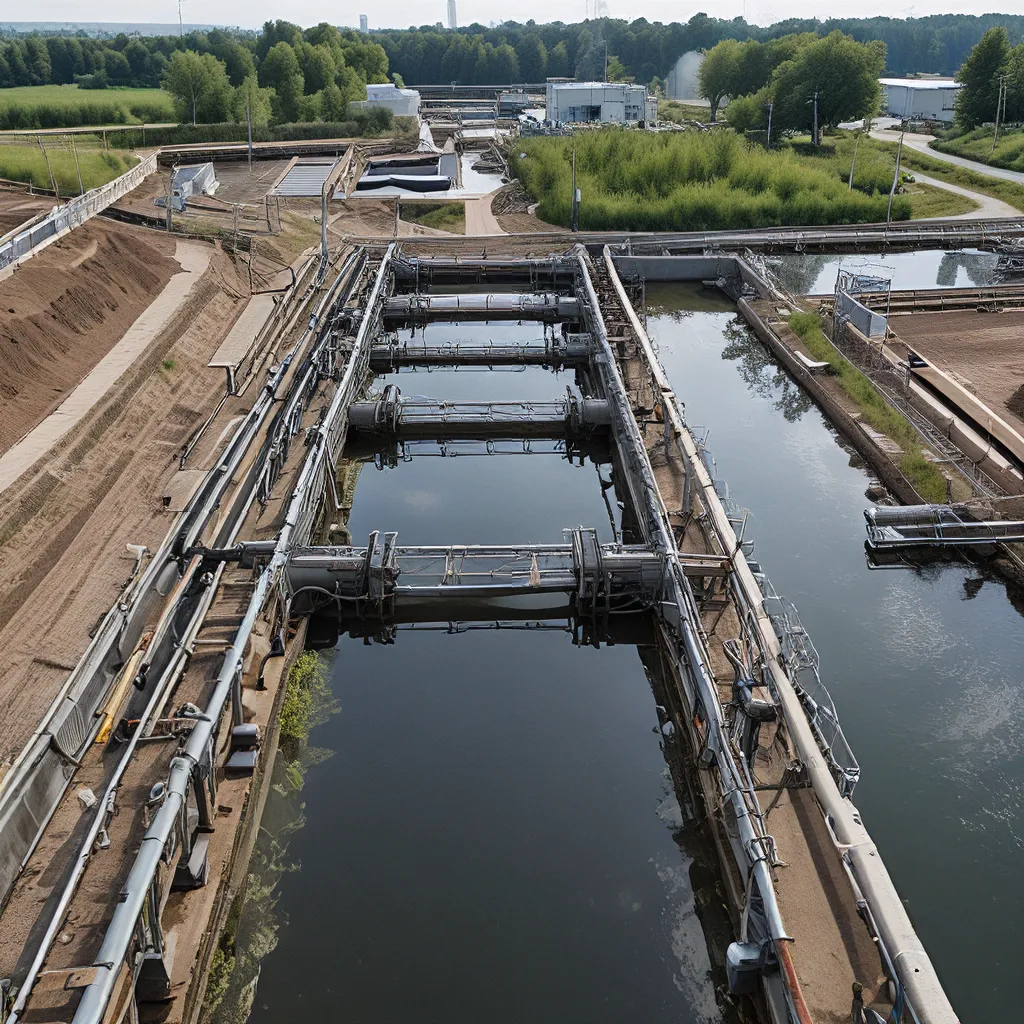
Riding the Wave of AI Innovation in Wastewater Treatment
As an AI enthusiast and someone deeply passionate about sustainable water management, I’ve been closely following the intersection of artificial intelligence (AI) and wastewater treatment. It’s an exciting frontier where cutting-edge technology is transforming the way we approach one of the most critical environmental challenges of our time.
In my experience, the wastewater treatment industry has traditionally relied on manual processes, rule-based systems, and human expertise to navigate the complexities of water purification. But with the rapid advancements in AI, I believe we’re poised to take a giant leap forward in enhancing the decision-making capabilities of wastewater treatment facilities.
Recent studies have shown that AI-powered systems can optimize chemical dosing, predict equipment failures, and even identify potential process bottlenecks – all of which can lead to significant improvements in operational efficiency, cost savings, and environmental impact.
Harnessing the Power of AI for Smarter Water Management
One of the most promising applications of AI in wastewater treatment is its ability to analyze vast amounts of data from various sources, including sensor readings, historical records, and real-time process parameters. By leveraging machine learning algorithms, these systems can identify patterns, detect anomalies, and make informed predictions that help operators make more effective decisions.
For instance, smart water management systems powered by AI can anticipate equipment failures before they happen, allowing for proactive maintenance and reducing the risk of costly breakdowns. Similarly, AI-driven process optimization can help wastewater treatment plants fine-tune their chemical dosing, aeration, and other critical parameters, leading to improved effluent quality and reduced energy consumption.
But the potential of AI in wastewater treatment extends far beyond operational efficiency. Predictive analytics can also play a crucial role in anticipating and managing the impacts of climate change, such as fluctuations in water availability, extreme weather events, and changes in wastewater composition. By incorporating these insights into their decision-making processes, treatment facilities can become more resilient and adaptable to the challenges of the future.
Navigating the Challenges and Opportunities
Of course, the integration of AI in wastewater treatment is not without its challenges. One of the primary concerns is the reliability and interpretability of AI-powered decision-making. As these systems become more complex, it can be increasingly difficult to understand the underlying logic behind their recommendations, which can raise issues around transparency and trust.
Researchers are actively exploring ways to address these challenges, such as developing explainable AI models that can provide clear explanations for their outputs. Additionally, there is a need for rigorous testing and validation of AI-powered systems to ensure their robustness and consistency, particularly in critical infrastructure like wastewater treatment.
Despite these hurdles, I believe the potential benefits of AI in wastewater treatment far outweigh the challenges. As an AI expert, I’m excited to see how the technology can transform the industry, enhance environmental sustainability, and ultimately improve the quality of life for communities around the world.
Embracing the Future of Wastewater Treatment
At Alpha Wastewater, we are at the forefront of this technological revolution. Our team of AI specialists and water management experts are collaborating to develop innovative solutions that leverage the power of artificial intelligence to optimize our clients’ wastewater treatment processes, reduce their environmental impact, and drive long-term cost savings.
Whether it’s predictive maintenance, process optimization, or data-driven decision-making, we are committed to harnessing the best of what AI has to offer to create a more sustainable and efficient future for wastewater treatment. And as the field continues to evolve, I’m confident that the integration of AI will only become more widespread and impactful, transforming the industry in ways we can scarcely imagine.
So, if you’re ready to ride the wave of AI innovation and take your wastewater treatment operations to the next level, I encourage you to explore the services and solutions we offer at Alpha Wastewater. Together, let’s shape the future of this critical industry and make a lasting impact on the health of our planet.